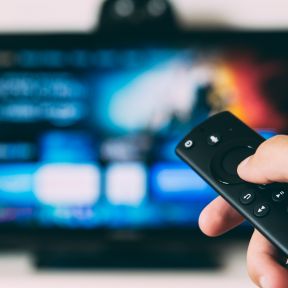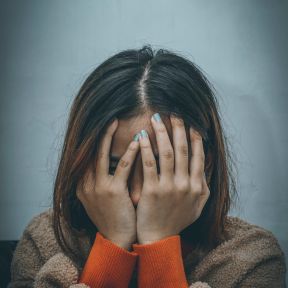
Parasocial Relationships
Parasocial relationships refer to one-sided relationships in which a person develops a strong sense of connection, intimacy, or familiarity with someone they don’t know, most often celebrities or media personalities. These relationships exist only in the mind of the individual, who experiences a bond despite the lack of reciprocity.
The term was coined by psychologists Donald Horton and R. Richard Wohl in 1956 when televisions became widely available, they noted that TV viewers began to develop the “illusion of intimacy” with the characters on the screen.
Although parasocial relationships are inherently imaginary, they can feel real for the person experiencing them. An individual may see in, or project onto, a celebrity a range of emotions that mirror their feelings and challenges.
There is no firm conclusion regarding why people develop parasocial relationships, but one is that the human brain developed to be social, and when so much of our time is spent online or watching TV or movies, we’re naturally inclined to recognize the faces we repeatedly see and develop warm feelings for them.
Another possible cause is loneliness. Some research suggests that the lonelier an individual feels, the more likely they are to engage in parasocial relationships, seeking a connection in some form, if not in real life. Other research contradicts the idea that these relationships are caused by loneliness. Instead, researchers including Rachel Forster have found that highly social individuals who are more likely to form friendships and relationships in real life are also more likely to form parasocial relationships.
There is also the belief that parasocial relationships can simply be less demanding and more fun than real-life relationships. There are no conflicts with a person we don’t know, no favors or maintenance that need to be attended to; plus the subjects of parasocial relationships are typically talented, beautiful, or funny.
The matinee idols of early Hollywood may provide a good example of parasocial relationships. Psychologist Karen Dill-Shackleford says she has found evidence of celebrity crushes dating back to ancient Rome, in those cases with stage actors or famous speakers.
Being a fan, or part of a fandom, is not the same as being in a parasocial relationship, but there is plenty of overlap between the two. One distinction is that being a fan is not necessarily about personality. An individual may love the music of a particular artist or the actions of a character on a television show without identifying with them or caring about their lives off-stage or off-screen.
Those in parasocial relationships feel as if they know the celebrity, and the relationship feels as if it is between peers. Fans, on the other hand, most often love a celebrity for their talent and view them as superior human beings.
Social media certainly facilitates parasocial relationships, the public is privy to the details of a celebrity’s personal life through platforms like Instagram or X (formerly Twitter). Celebrities sometimes even reply to their fans.
Although social media allows individuals to know more about the celebrity, it has not necessarily increased the prevalence of parasocial relationships. Just because the Beatles were not on Instagram doesn’t mean their fans weren’t rabid like fans are today.
No. Parasocial relationships can be romantic or platonic.
Originally believed to be unhealthy, contemporary research has mostly discarded this view, these relationships are typically harmless and, in fact, quite common. However, when parasocial relationships become consuming for an individual, they may be considered unhealthy—the individual ceases to maintain their real-life relationships or daily functioning becomes impaired. This can hinder personal growth and emotional fulfillment.
Research finds that parasocial relationships improve an individual’s well-being by providing a sense of companionship and someone with whom they can relate. In rare cases, these relationships may contribute to an individual losing touch with reality. One example of an unhealthy and delusional parasocial relationship is John Hinckley, Jr. who was infatuated with the actress Jodie Foster. Hinckley, who also suffered from psychiatric conditions, shot President Ronald Reagan in 1981 in an attempt to impress Foster.
People from marginalized groups like LGBTQ youth may derive particular pleasure from parasocial relationships; the celebrity might look like them or share their identity. People feel less alone as a result. “LGBTQ youth, who may not have access to people like them, can turn to parasocial relationships because it’s something that can enrich their limited social world,” says researcher Rachel Forster.
No, although celebrities are the most common subjects of these relationships. Individuals may develop parasocial relationships with anyone they are exposed to. A person could develop a parasocial relationship with a fictional character, barista, or college professor, for example.
A parasocial breakup occurs when the focus of the parasocial relationship is no longer in public view. This could happen for a few reasons, including retirement, death, or the end of a TV show. Individuals may grieve these breakups as they would a real breakup or death of a loved one.
Children and teens engage in parasocial relationships perhaps the most. Children plaster posters of their favorite musicians or athletes in their rooms. Researchers have noted that hormonal changes may predispose adolescents to parasocial crushes.
Some popular examples of public figures who have been popular as subjects of parasocial relationships include Taylor Swift, Steve Irwin, and T’Challa of the movie Black Panther.
Swift has a legion of followers who pay attention to her every move, expressing opinions on her private life. When television star and naturalist Steve Irwin died from a stingray attack, legions of fans grieved for him, including some who went so far as engaging in revenge killings of stingrays. T’Challa is the fictional protagonist of the film Black Panther. Many felt the film did so well because African Americans felt a connection with a Black protagonist in a major film.










